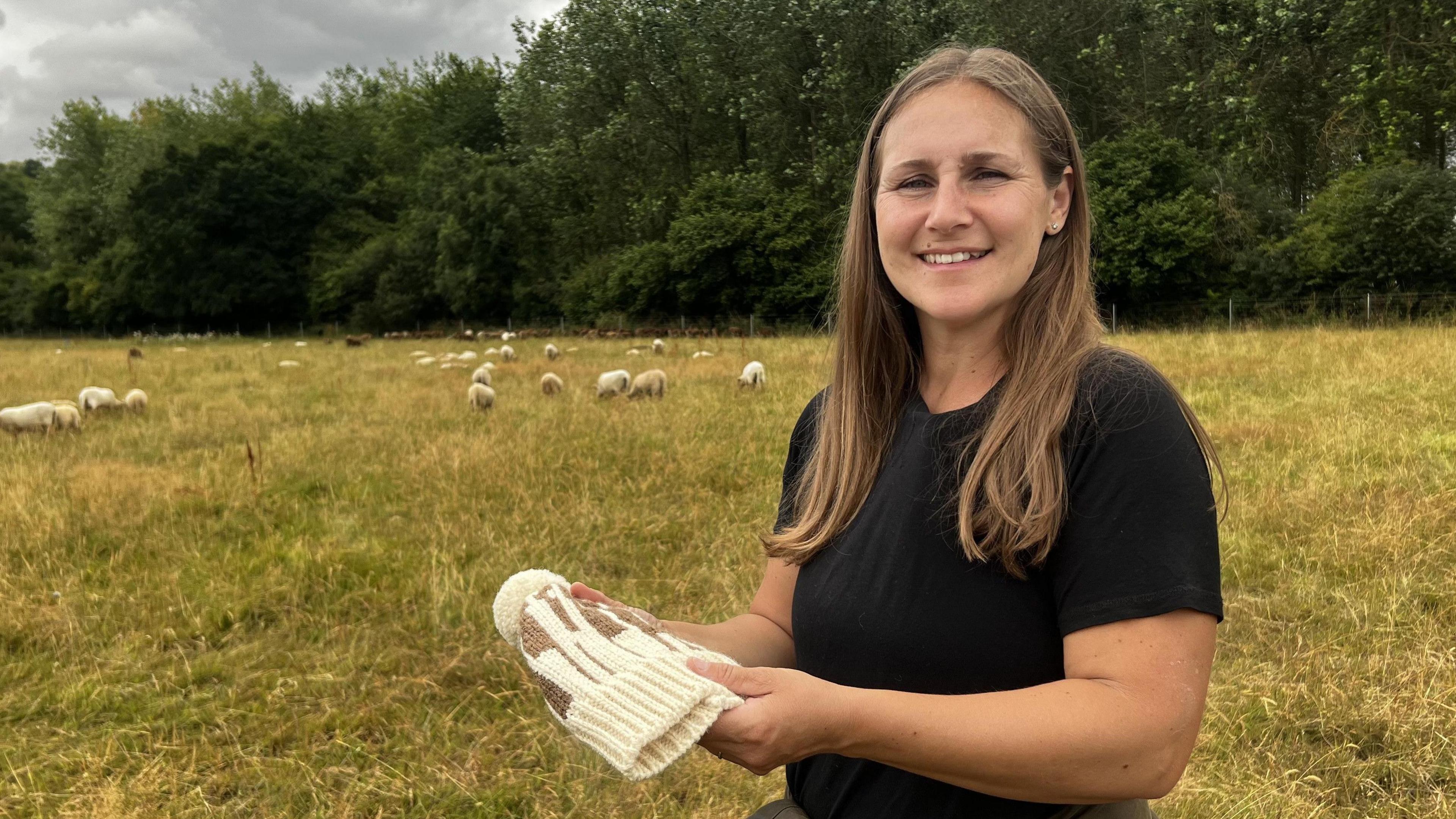The farmers and growers producing food in London
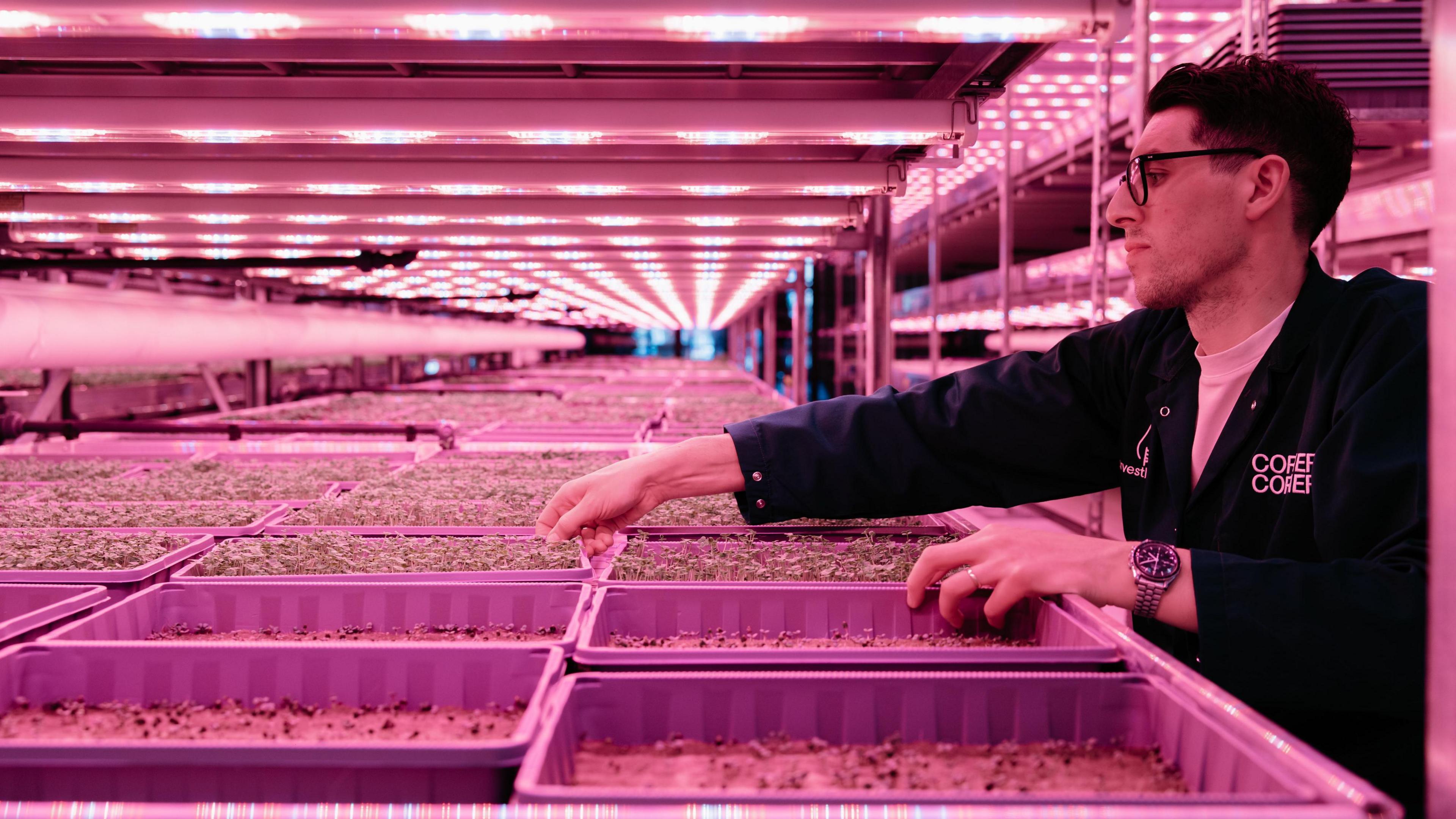
Harvest London has set up vertical farms in Lea Bridge and Canada Water
- Published
Ninety-nine percent of produce consumed in London had to be brought in from outside the M25 and beyond, a report published earlier this year, external by the London Assembly's Environment Committee found.
With built-up areas and expensive land prices, few would consider the capital a good place to set up a farm.
Yet growers can be found across the city - some new, some well established - providing crops and produce to Londoners.
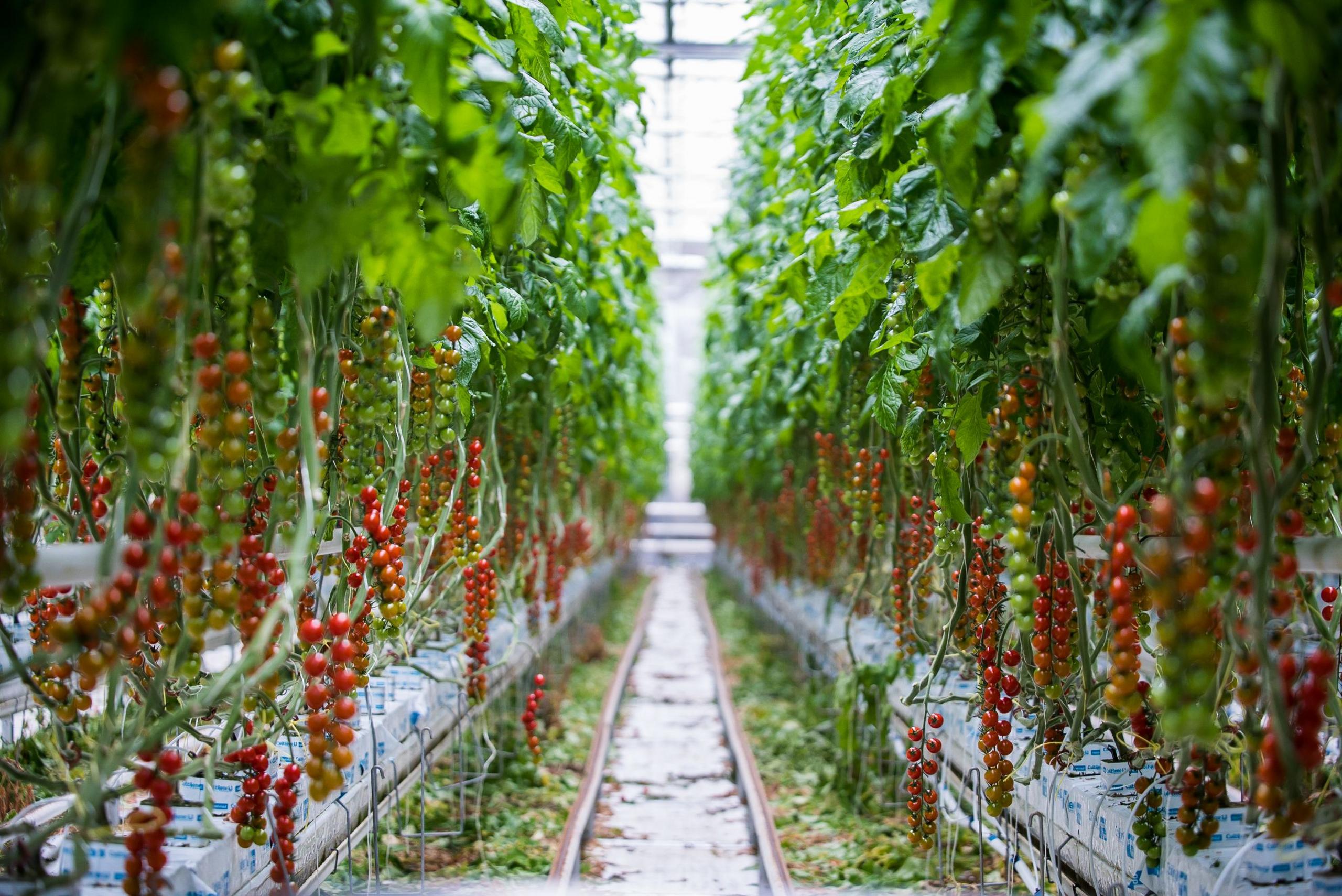
Lea Valley is filled with some 450 acres of glasshouses, each growing produce
North-east of the city is an area that has been dubbed the "Cucumber capital of Britain" or "London's salad bowl".
"The glasshouses of the Lea Valley were established in the 1850s to service Covent Garden Market as this was just a day's horse-and-cart ride," explains Lee Stiles, secretary of the Lea Valley Growers' Association.
The area, made up of some 450 acres of glasshouses, can be found on the London, Essex and Hertfordshire border, straddling the River Lea.
From here 80 million cucumbers are grown every year - three-quarters of the UK crop - as well as 100 million sweet peppers, 25 million aubergines and thousands of tonnes of vine tomatoes.
About 70 growers are part of the association, with several of those based within Greater London.
"Lea Valley produce can be packed on site and delivered to London overnight," he says.
Mr Stiles adds the area has reduced in size since its heyday in the 1950s when the valley "had the largest concentration of glasshouses in the world at 1,100 acres". Many were later sold off for housing and industrial uses.
Nevertheless, he considers it still to be an essential location.
"Growing food near to London is not only beneficial for food security, shelf life, produce quality and reducing food waste, it also means that food miles, environmental and social impacts, are lower than importing from countries with water scarcity and poor working conditions."
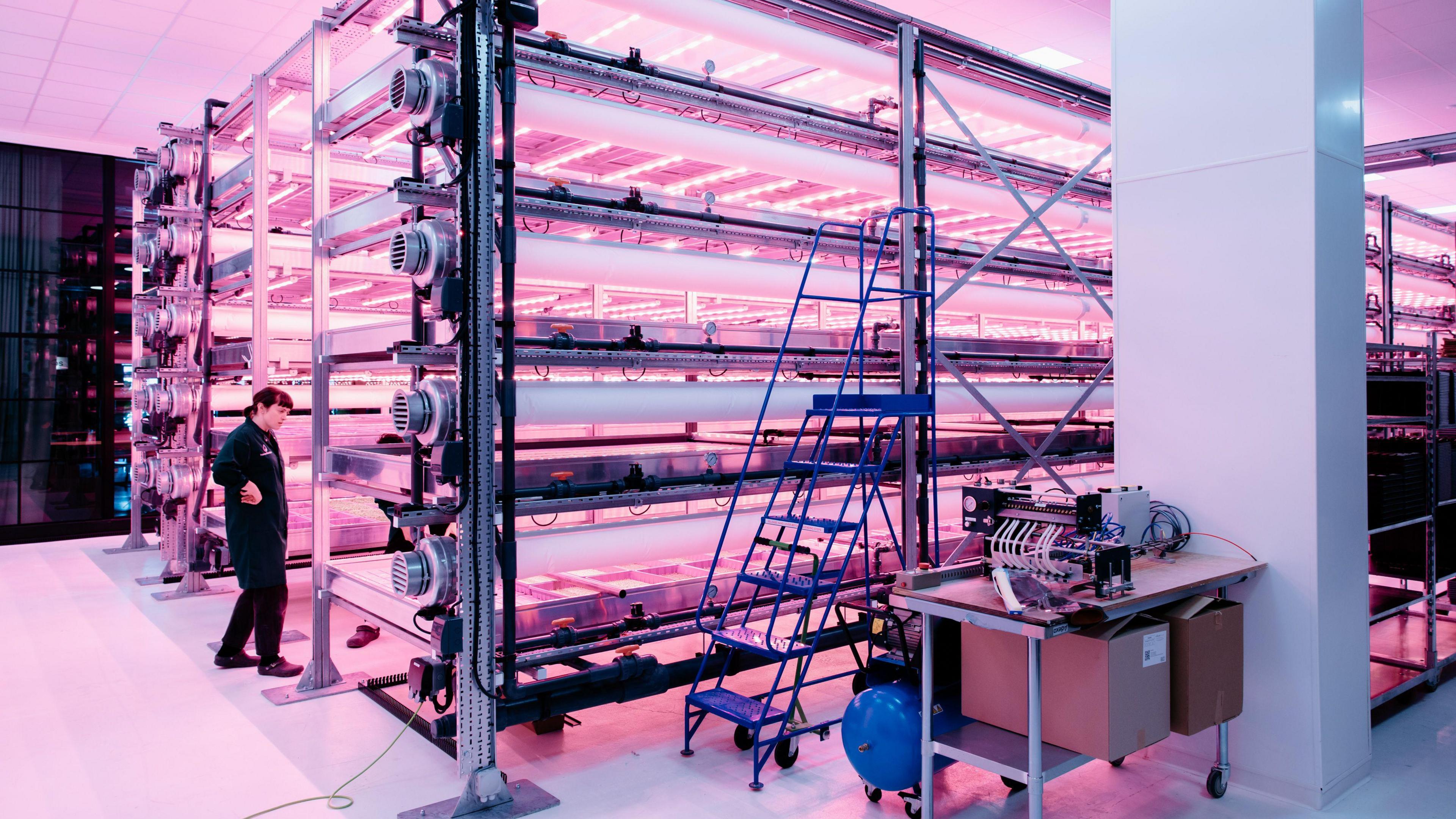
Harvest London currently focuses on salad and herbs
It's a sentiment shared by a much newer farm, developed nearer to London's heart.
Started in 2017 in a lockup above a garage, Harvest London uses vertical farming to grow produce for London's restaurants and other food services.
The technique sees crops being grown indoors where they are stacked in vertical layers and are subject to artificial temperature, light, water and humidity control.
"We grow all the year around, we don't use pesticides, everything is super-local so there's no air miles, it lasts for ages, it's really clean and we're super-consistent," says co-founder Matt Chlebek.
"The reason why we are where we are is because we can harvest something and it's in the kitchens three to four hours later, every day, without fail."
Success at the lockup led to the firm moving to a much larger farm in Lea Bridge, with a second being opened as part of a music, food and events venue called Corner Corner that recently opened in Canada Water.
Mr Chlebek says the team have experimented with growing "hundreds of different things over the years, everything from carrots to radishes, to aubergines", but the current focus is mainly on salad and herbs, with space in both locations being completely sold out.
"There's a criticism of vertical farming to say that salad and herbs is all that vertical farming does. My response to that is someone's got to do it and there's demand.
"There is a huge market for salad and herbs. It is being serviced by someone, somewhere invariably outside of the country and our job is to bring that growing back into the UK and back closer to where it comes from."
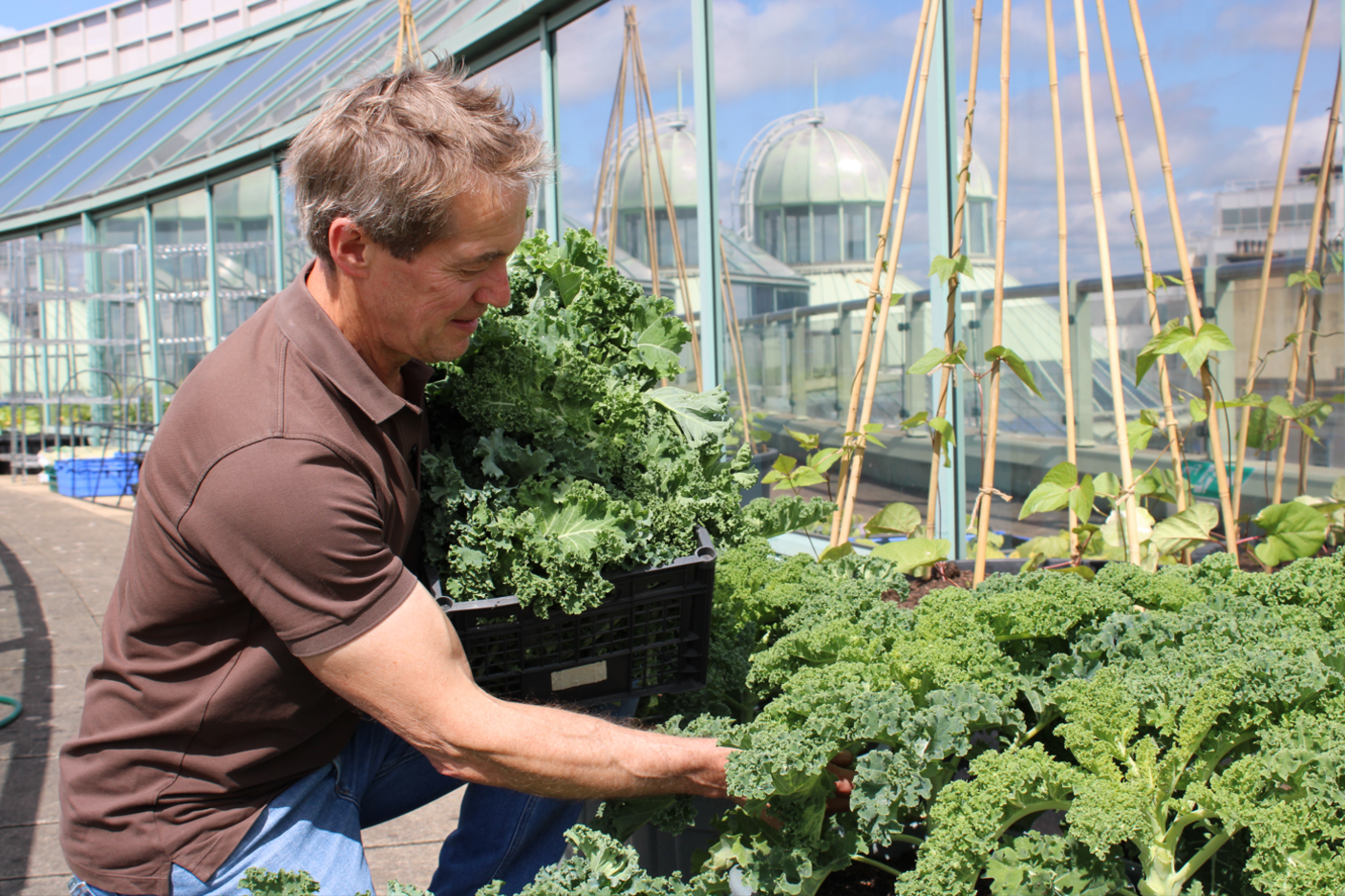
Courgettes, lettuce, kale, chilli, tomato, sweetcorn, rosemary and aubergines are among the crops to be found growing on one Wimbledon rooftop
A leisure venue south-west of the city is the site of another of London's farms.
During the recent redevelopment of Wimbledon Quarter - formally the Centre Court shopping centre - a large unused section of roof space was turned into the Rooftop Farm Wimbledon and became a space for producing everything from courgettes, lettuce and kale, to oyster mushrooms and honey.
Ned Wainwright, who helps manage the farm, says its creation was partly down to an effort to recycle coffee grounds created by local businesses, which were then used to help grow mushrooms.
Other produce followed, with plants grown in old shopping crates, as well as the addition of apiaries that contain an estimated 180,000 honey bees.
The goods are then sold to local restaurants, to the public through a cafe in Wimbledon Quarter and as part of a monthly food box service which people can subscribe to.
The location of the rooftop farm can make it a challenge and means it's certainly not an easy way to make money, says Mr Wainwright.
"Using a rooftop space is definitely a learning curve, some veg loves the micro climate and some doesn't so much."
He explains that another reason behind the farm is to "show the local community what can be done with a small space, even if there's no soil", with events and visits organised around the farm site.
"The idea is to kind of teach the local community what they could do and try and inspire them."
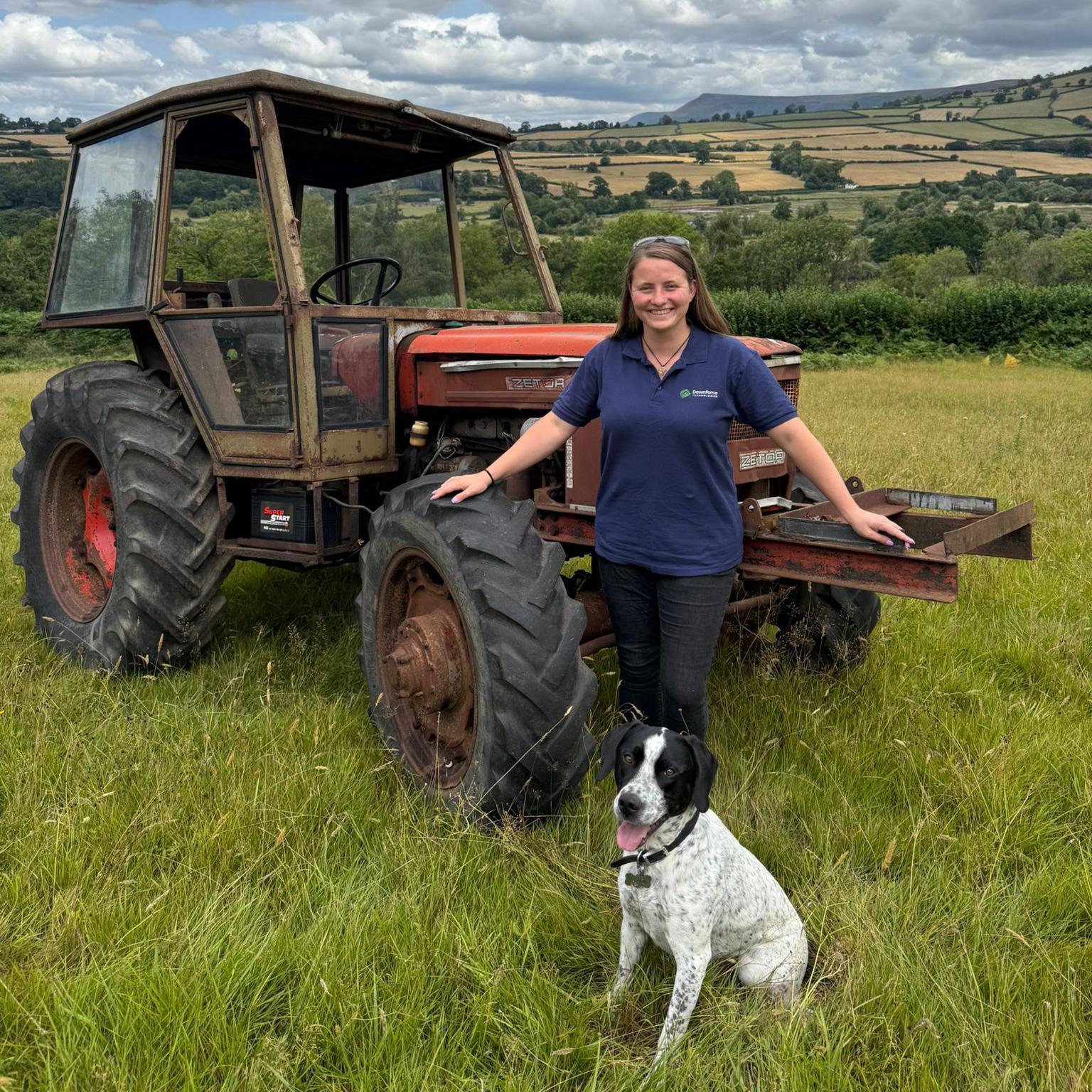
As well as her NFU duties, Liz Tree works for the agri-tech industry while also having her own smallholding in South Wales
For Liz Tree, a former young farmer ambassador for the National Farmers' Union (NFU), having such schemes in London is hugely important.
"It is a big contribution to the economy - farming and the whole food supply chain - and it always surprises me that people don't take it a bit more seriously," she says.
"Food miles is definitely a massive, massive thing that I think people don't necessarily understand."
Ms Tree grew up in Croydon with no family links to farming and without "understanding rural life whatsoever", until a chance encounter in the Brecon Beacons led to her working on a sheep farm while on holiday and subsequently pursuing a career in agriculture.
She still works with the NFU on its education schemes and believes people should know more about where their food comes from.
"We have a programme called Farmers for Schools, which is basically where a farmer goes into a school... and sometimes it can be quite shocking at the lack of understanding that kids have about even the things that we can physically grow in this country," she says.
"I personally think anyone that has any kind of garden, or you know a window that you could put a window box on or something, should be experimenting growing something just because it's really fun.
"It's is so satisfying to see things that you've grown yourself."
Listen to the best of BBC Radio London on Sounds and follow BBC London on Facebook, external, X, external and Instagram, external. Send your story ideas to hello.bbclondon@bbc.co.uk, external
Related topics
More stories on UK farming
- Published4 August
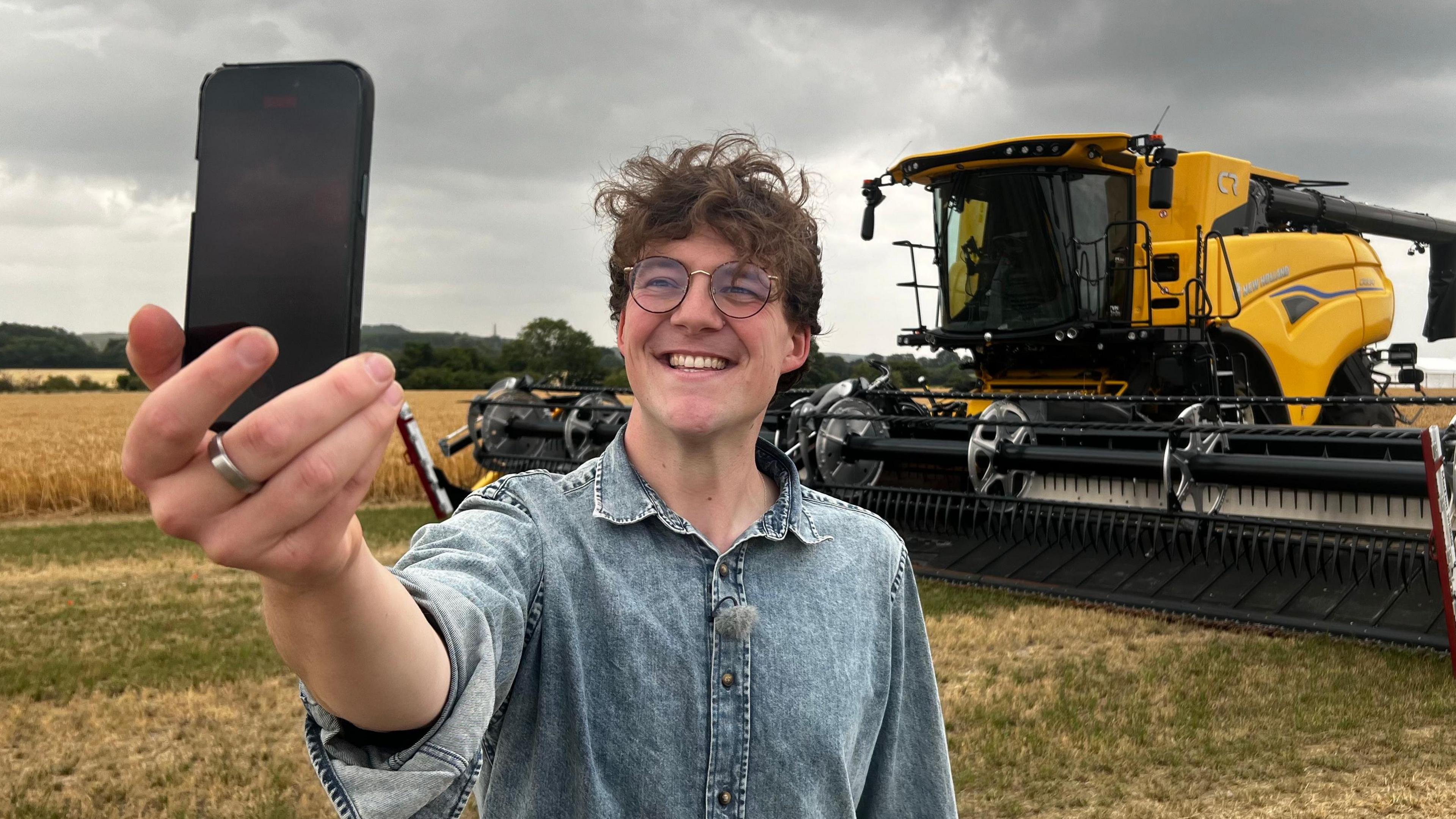
- Published23 June
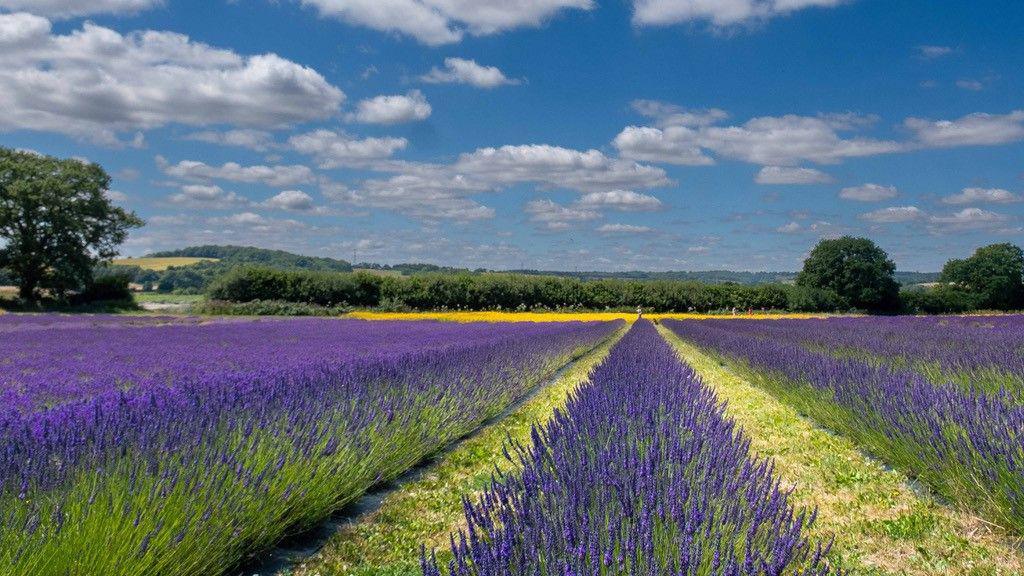
- Published5 August
